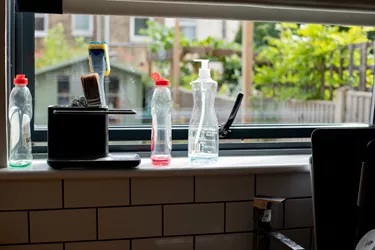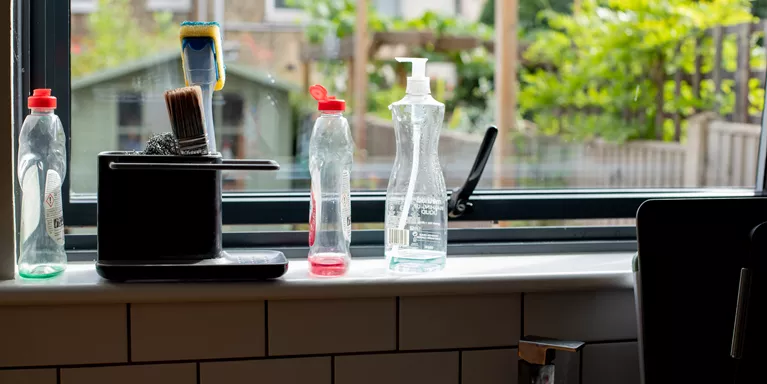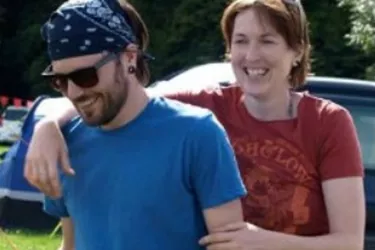How to cope with being a carer
Beth, who has supported her mum with agoraphobia for many years, offers practical advice for others who support someone with a mental health problem.
I wish you could meet my Mum. She is a kind, funny, caring, attractive, trendy - 68 year old (you could take ten years off that). She is also immensely ashamed and tries to hide the fact to the outside world that every second of every day she is dealing with agoraphobia, panic and anxiety attacks and depression. Mum is constantly frightened and as she calls it, has a “fear of fear”. I love my Mum and we have always been close but I hate agoraphobia.
"Mum was unhappy, sad and angry. We now realise, decades later, it was her anxiety and phobias making her so angry."
My dad, my amazing younger sister and I have been caring for mum ever since the 1970s. My lovely Dad worked hard, took us to school, did all the shopping and generally ferried us girls to our hobbies. Mum took care of everything within the home. Despite her agoraphobia, at heart Mum is a very social person, she loves people and is warm and friendly. Dad wasn’t. He didn’t like social gatherings so was generally happy to stay at home, tinkering with his motorbikes. There were no holidays and days out were minimal.
It was hard. Mum was unhappy, sad and angry and the arguments were relentless. We now realise, decades later, it was her anxiety and phobias making her so angry, rather than something we had done. Anyone who had severe mental health illnesses generally entered a psychiatric hospital. Mum had two short stays there when I was a toddler, she hated it and it still finds the memory of it upsetting today.
But during the 1970s and 1980s there was no mental health awareness, and apart from these short unhappy periods in hospital she received no care. Mum refuses to be under a specialist; she is frightened of facing her issues.
"Mum’s agoraphobia had a huge impact on us. My sister and I ended up becoming independent at a young age."
Mums agoraphobia had a huge impact on all our lives. So I would do all the shopping with dad, attend all family functions. My sister and I ended up becoming independent at a young age. For example I competitively danced, but I went on my own and Mum missed out on everything.
Today things are better, but they are far from perfect. She still can’t do the following on her own – shopping, hairdressers, dentist, doctor, hospital, anything involving an appointment where she feels trapped. She now goes on breaks away (no further than an hour from home), but one of us has to be there. She also has separation anxiety. If we go on holiday she hates us being away and is good at making us feel guilty.
But over the years, a couple of important things helped her regain some of her confidence and independence.
When I was 16 years old, we bought a dog called Jet (a black Labrador and cocker spaniel cross). It was the best thing we did. Mum started to walk him and it was as if he had a sixth sense for the challenges Mum faced. Every day he seemed to push to see if she would go further and further away from the home. Jet was Mum’s best friend and confidante, but we all adored him.
After I passed my driving test, I encouraged mum to take lessons. I knew Mum had driven a car before she became so ill and liked it. I persuaded her to take lessons, we spoke to the driving instructor and explained that if Mum had a panic attack she would need to return home, the driving instructor agreed and was fantastic. Every driving lesson (and test) I sat in the rear of the car, only a few lessons and two tests later she passed. It was the best thing she ever did, it gave her some independence and today as long as she has her phone and her car (so she can get home quickly) she can pop to her friends and have a coffee.
"In a way nothing has changed – we still don’t know what we’re doing But I just want other carers out there to know they are not alone."
As a teenager I was desperate to see my Mum happy (and go clothes shopping with her). My sister and I were her carers, but we had no idea what we were doing. So we simply tried our best to do what we could to help her.
In a way nothing has changed – we still don’t know what we’re doing. But I just want other carers out there to know they are not alone (take all the support you can, read the articles on Mind and understand what you, your family and your loved one are dealing with. It’s hard, keep smiling, keep caring, keep talking and try to rid yourself of the guilt (because you never feel like you do enough). Remember your loved one should not be defined by their mental health. Tell them they are amazing. Good luck.


Information and support
When you’re living with a mental health problem, or supporting someone who is, having access to the right information - about a condition, treatment options, or practical issues - is vital. Visit our information pages to find out more.
Share your story with others
Blogs and stories can show that people with mental health problems are cared about, understood and listened to. We can use it to challenge the status quo and change attitudes.

















